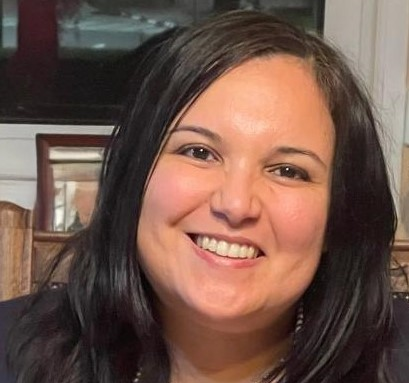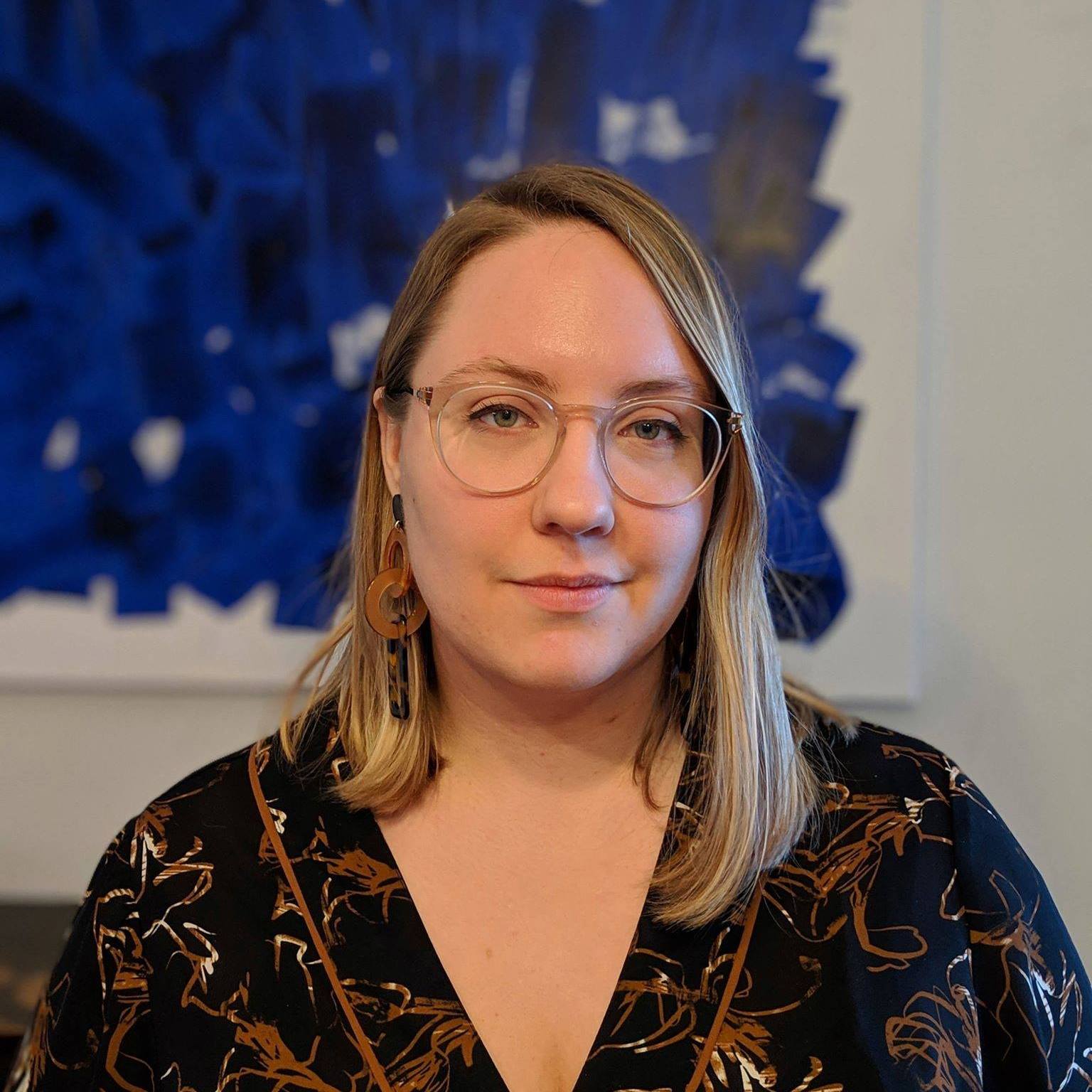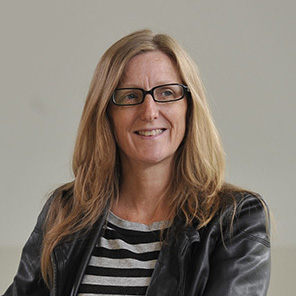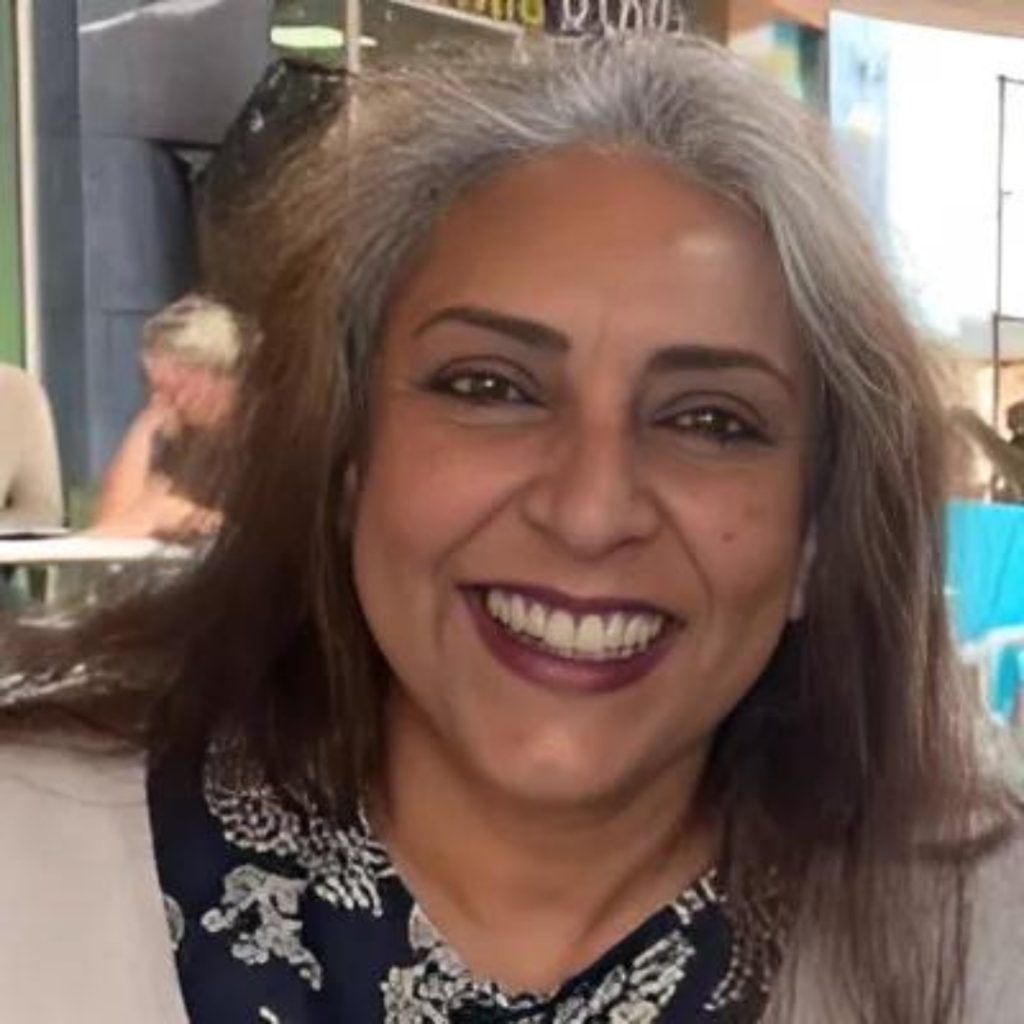
Alison Harvey
Alison Harvey

Alison Harvey is Associate Professor in the Communications program at Glendon College, York University. Her research and teaching focuses on issues of inclusivity and accessibility in digital culture, with an emphasis on gender and labour in digital games. She is the author of Gender, Age, and Digital Games in the Domestic Context (2015, Routledge) and Feminist Media Studies (2019, Polity). Her work has also appeared in a range of interdisciplinary journals, including New Media & Society, Games & Culture, International Journal of Cultural Studies, Feminist Media Studies, Information, Communication & Society, Social Media & Society, and Studies in Social Justice. She is also currently the president of the Canadian Game Studies Association.

Dr. Christopher Ali
Dr. Christopher Ali

Dr. Christopher Ali is the Pioneers Chair in Telecommunications and Professor of Telecommunications in the Bellisario College of Communications at Penn State. He holds a Ph.D. in communication studies from the Annenberg School for Communication at the University of Pennsylvania (2013). An acknowledged national expert on broadband deployment, policy and planning, he is the author of the book Farm Fresh Broadband: The politics of rural connectivity (MIT Press, 2023). Based on his expertise, Dr. Ali was called to testify before the US Senate Commerce Committee in 2021 on broadband funding and policy programs. He has also briefed members of the House Democrats Task Force on Rural Broadband, the New York State Blue Ribbon Commission on Re-Imagining New York, the Federal Communications Commission, and has presented before numerous state and county governments. In addition to his academic writing which is published in several high impact peer-reviewed journals, his writing on broadband and communication policy has been published in The New York Times, The Hill, Realtor Magazine, Law & Political Economy, Digital Beat, GovTech, Zocalo Public Square, Washington Monthly, Columbia Journalism Review, and The Conversation.

Chloe Hays
Chloe Hays (She/Her)

She is currently pursuing her Masters Degree from Lakehead University, in the field of Social Justice Studies. She obtained her Honours Bachelor of Arts (HBA) in Political Science (Pre-Law), with a minor in English, from Lakehead University in May of 2024. Her areas of research focus on theories of Social Justice, International Peace Building and Conflict Resolution, and Intersectional Studies. She has recently begun focusing her research on Technopolitics, Digital Media and Communications studies.

Ellis Greenberg
Ellis Greenberg (they/them)

Ellis (they/them) is the Pioneers Chair in Telecommunications and Professor of Telecommunications in the Bellisario College of Communications at Penn State. He holds a Ph.D. in communication studies from the Annenberg School for Communication at the University of Pennsylvania (2013). An acknowledged national expert on broadband deployment, policy and planning, he is the author of the book Farm Fresh Broadband: The politics of rural connectivity (MIT Press, 2023). Based on his expertise, Dr. Ali was called to testify before the US Senate Commerce Committee in 2021 on broadband funding and policy programs. He has also briefed members of the House Democrats Task Force on Rural Broadband, the New York State Blue Ribbon Commission on Re-Imagining New York, the Federal Communications Commission, and has presented before numerous state and county governments. In addition to his academic writing which is published in several high impact peer-reviewed journals, his writing on broadband and communication policy has been published in The New York Times, The Hill, Realtor Magazine, Law & Political Economy, Digital Beat, GovTech, Zocalo Public Square, Washington Monthly, Columbia Journalism Review, and The Conversation.

Emily Faubert
Emily Faubert (she/they)
 Emily Faubert (she/they) is a PhD student in Information Systems at the University of Toronto. Their current work focuses on predatory accessibility technologies and platform enclosure. Her background is in Journalism and Digital Media Cultures (HBA), Social Justice Studies (MA), as well as community organizing for fare-free public transportation and mobility justice. They’re currently the Senior Accessibility Editorial Fellow for Cabaret Commons, has contributed work to The Walrus and Societies, and is one of the coauthors of Queer Cartographies: Mapping Queerealities.
Emily Faubert (she/they) is a PhD student in Information Systems at the University of Toronto. Their current work focuses on predatory accessibility technologies and platform enclosure. Her background is in Journalism and Digital Media Cultures (HBA), Social Justice Studies (MA), as well as community organizing for fare-free public transportation and mobility justice. They’re currently the Senior Accessibility Editorial Fellow for Cabaret Commons, has contributed work to The Walrus and Societies, and is one of the coauthors of Queer Cartographies: Mapping Queerealities.

Dr. Faiza Hirji
Dr. Faiza Hirji

Dr. Faiza Hirji is an Associate Professor in the Department of Communication Studies and Media Arts, McMaster University. Her research interests include media representation of race, religion, ethnicity and gender, use of media in the construction of identity, and the importance of media within diasporic/transnational communities. Her book, Dreaming in Canadian: South Asian Youth, Bollywood and Belonging, was published in 2010 by UBC Press. With Sikata Banerjee and Rina Verma Williams, Faiza co-edited a special issue of Global Media Journal – Canadian Edition on Bollywood, Power and Politics (2021). She is also the co-editor (with Yasmin Jiwani and Kirsten McAllister) of a special issue of the Canadian Journal of Communication on the topic of racism and colonialism in Canadian communication studies (2022). She is currently working on a book about media representation of Muslim women, in addition to her involvement as a co-director on the SSHRC-funded project, “Intersectional Community Communications as Critical EDI Work.”

Iowyth Hezel Ulthiin
Iowyth Hezel Ulthiin (they/them)

Iowyth Hezel Ulthiin (they/them) is a PhD student at Toronto Metropolitan University. They have a BFA in Intermedia & Cyberarts from Concordia University and an MEd from Lakehead University. Their first monograph was developed from the thesis, “The Witch: A Pedagogy of Immanence,” and is published with Dio Press. Their co-authored text “The Capitol Riots: Digital Media, Disinformation, and Democracy Under Attack” is published with Routledge with a title forthcoming on The Political Economies of Alternative Media. “Queer Cartography: Mapping Queerreality” an experimental collaborative text, is currently under consideration with Punctum Press. io’s research explores participatory cultural creation in outsider spaces through a Métis, queer, mad-crip lens, focusing on the practical realisation of horizontal power relations and radical social alternatives.

Kenza Oumlil
Kenza Oumlil

Kenza Oumlil is an Associate Professor in Communication at Al Akhawayn University in Ifrane (AUI), Morocco. Oumlil holds a Ph.D. in Communication from Concordia University in Montréal, Canada. She has published widely on representation, gender, and media, including articles in the Journal of North African Studies, Feminist Media Studies, the Journal of Alternative and Community Media, and Al-Jazeera English. Oumlil is the author of the manuscript titled North American Muslim Women Artists Talk Back: Assertions of Unintelligibility (Routledge, 2022).

Kirsten E. McAllister
Kirsten E. McAllister

Kirsten E. McAllister is a Professor in the School of Communication at Simon Fraser University. Her research and teaching focus on political violence, racism, migration and diaspora and her approach is interdisciplinary, drawing on Memory Studies, Visual Studies, Ethnography, Critical Race Studies and Indigenous Studies. She draws on methodologies from Art History and Ethnography, as well as creative practices from Literary Studies and Autoethnography. She has conducted community-based research projects in national and transnational contexts. In Canada has examined WWII Japanese Canadian internment camps, focusing on memorials, photographic records, oral accounts, archival documents and other media of memory produced by members of the community. In a transnational context she has researched community-based art and asylum seekers as well as contemporary Asian Canadian artists who explore different sites of memory regarding war, military occupation, colonialism and environmental disaster. Her publications include Photography Acts: Locating Memory (2006 with Annette Kuhn); Terrain of Memory: a Japanese Canadian Memorial Project (2010); The Geography of Asylum: Art Activism and the City of Glasgow (under contract with Palgrave-MacMillan); and she is currently completing a co-edited collection of essays with Mona Oikawa and Roy Miki entitled, “After Redress: Indigenous and Japanese Canadian Cultural Politics”.
Kenza Oumlil is an Associate Professor in Communication at Al Akhawayn University in Ifrane (AUI), Morocco. Oumlil holds a Ph.D. in Communication from Concordia University in Montréal, Canada. She has published widely on representation, gender, and media, including articles in the Journal of North African Studies, Feminist Media Studies, the Journal of Alternative and Community Media, and Al-Jazeera English. Oumlil is the author of the manuscript titled North American Muslim Women Artists Talk Back: Assertions of Unintelligibility (Routledge, 2022).

Kyra Min Poole
Kyra Min Poole (she/her)

Kyra Min Poole (she/her) is a Research Assistant at Lakehead University (Interdisciplinary Studies Department)
Research interests in: Tricksters, Comedy, and Humorous Resilience
Personal details: overbearing cat mother and aspiring queer yoga instructor

Marie Bernard-Brind’Amour
Iowyth Hezel Ulthiin (they/them)
 Marie Bernard-Brind’Amour is a PhD student researching alternative media and social movements at Concordia University. Her work currently focuses on 1970s artist-driven and LGBTQ resistance in Montreal. She has a background in political science, public relations and communications management, and has co-authored articles for journals such as the International Journal of Communication and the Global Media Journal Canadian Edition.
Marie Bernard-Brind’Amour is a PhD student researching alternative media and social movements at Concordia University. Her work currently focuses on 1970s artist-driven and LGBTQ resistance in Montreal. She has a background in political science, public relations and communications management, and has co-authored articles for journals such as the International Journal of Communication and the Global Media Journal Canadian Edition.

Rawan Genina
Rawan Genina (She/Her)
 Rawan Genina (she/her) is a research assistant within the Interdisciplinary Studies Department at Lakehead University, responsible for maintaining and updating the Media Action Research Group (MARG) website. She is currently a third-year Software Engineering student at Lakehead University and with a background in Software Development from Mohawk College, Rawan integrates her technical expertise into research projects that emphasize accessible digital environments. Outside of her academic work, she is passionate about technology and its role in promoting inclusive digital spaces.
Rawan Genina (she/her) is a research assistant within the Interdisciplinary Studies Department at Lakehead University, responsible for maintaining and updating the Media Action Research Group (MARG) website. She is currently a third-year Software Engineering student at Lakehead University and with a background in Software Development from Mohawk College, Rawan integrates her technical expertise into research projects that emphasize accessible digital environments. Outside of her academic work, she is passionate about technology and its role in promoting inclusive digital spaces.

Dr. Sandra Jeppesen
Dr. Sandra Jeppesen

Professor in Media, Film and Communications at Lakehead University, and co-founder of the Media Action Research Group, Dr. Jeppesen has held the Lakehead University Research Chair in Transformative Media and Social Movements (2016-18). Co-editor, with Dr Paola Sartoretto, of Media Activist Research Ethics: Global Approaches to Negotiating Power in Social Justice Research (2020). Most recent books include: Transformative Media: Intersectional Technopolitics from Indymedia to #BlackLivesMatter (UBC Press 2021) and The Capitol Riots: Digital Media, Disinformation, and Democracy Under Attack (Routledge 2022). Dr. Jeppesen has held several SSHRC Grants as PI, the most recent two being Counter-Mapping COVID: Grassroots visualizations of data on the margins, as well as the SSHRC Race, Gender, and Diversity Initiative project, Intersectional Community Communications as Critical EDI Work.

Stephanie Fisher
Stephanie Fisher

Stephanie Fisher is a Co-Director at Pixelles, a non-profit dedicated to supporting women and improving gender diversity in the games industry. She collaborates with video game organizations, industry partners and scholars to create programs that support underrepresented game makers and examine the impact of community-driven, inclusivity-focused initiatives. She is also a PhD Candidate at the Faculty of Education, York University, and works as the Social Sciences Partnered Research Officer, Faculty of Arts & Science at the University of Toronto. Her research on gender and games has been published in Feminist Media Studies, Learning, Media & Technology, and Loading…The Journal of the Canadian Game Studies Association.

Sundus Abdul Hadi
Sundus Abdul Hadi

Sundus Abdul Hadi is an artist and writer of Iraqi origin. She was raised and educated in Tiohtià:ke/Montréal, where she earned a BFA in Studio Arts and Art History and a MA in Media Studies. Articulated through her artistic practice, writing and curation, Sundus’ work is a sensitive reflection on trauma, struggle, and care. She is the author/illustrator of Shams, a children’s book about trauma, transformation and healing. Her book titled “Take Care of Your Self: The Art and Cultures of Care and Liberation” (Common Notions, November 2020) is a non-fiction book about care, curation and community. She is the cofounder of We Are The Medium, an artist collective and culture point. In 2022, she founded Makaba Bookshop in the old port of Montreal.

Vange Holtz-Schramek
Vange Holtz-Schramek

Evangeline ‘Vange’ Holtz-Schramek (they/she) is a writer who mothers on the traditional territories of the Mississauga and Haudenosaunee nations, but who is from west coast unceded territories. Their award-winning critical and creative writing appears in journals including Feminist Media Studies, The Ampersand Review, Canadian Literature, and Grain Magazine. A SSHRC-CGS fellow, they are completing a doctorate at McMaster University under the supervision of Drs. Faiza Hirji, Sarah Brophy, and Andrea Zeffiro. Vange has extensive experience in the social policy education sector through their work at organizations including the Learning Disabilities Organization of Southern Vancouver Island (Victoria, BC), The Rogpa Friendship Center (Himachal Pradesh, India), Indigenous Affairs Ontario (Toronto, ON), the Scadding Court Community Centre (Toronto, ON), St. Stephen’s Community House (Toronto, ON), and the Pikangikum and Sandy Lake Boards of Education (Northern Ontario).

Yasmin Jiwani
Yasmin Jiwani

Yasmin Jiwani is Professor Emerita in the Department of Communication Studies at Concordia University, Montreal. She is the author of Discourses of Denial: Mediations of Race, Gender and Violence, as well as lead editor of Girlhood, Redefining the Limits, and co-editor of Faces of Violence in the Lives of Girls. Her work has appeared in a wide variety of journals and anthologies. Her research interests include mediations of race, gender and violence in the press, as well as representations of women of colour in popular media. She was the Concordia University Research Chair in Intersectionality, Violence and Resistance (2017-2022).

Dr. Zeinab Farokhi
Dr. Zeinab Farokhi

Dr. Zeinab Farokhi is currently a SSHRC Postdoctoral Fellow at Concordia University (2022-24) and an Assistant Professor at the University of Toronto Mississauga. Her dissertation, Digital Islamophobia: A Comparison of Right-Wing Extremist Groups in Canada, the United States, and India, via qualitative discourse analysis investigated and tracked the gendered, affective, and transnational digital strategies, rhetorics, and affinities of anti-Muslim extremist actors on Twitter. Building on her dissertation, Dr. Farokhi’s postdoctoral research will conduct a mix-methods comparison of Hindu nationalist and white supremacist accounts on YouTube in order to further assess the affective and affinitive alignments among extremist groups and their exploitation of audio-visual affordances. Dr. Farokhi’s work emphasizes feminist approaches to extremism, digital media, and transnational and diaspora studies, and highlights the urgent need to better understand how national and transnational extremist rhetoric manifests, spreads, and persuades across digital ecologies.

Zool Suleman
Zool Suleman
 Zool Suleman is a scholar, lawyer, writer, journalist, and cultural collaborator. He is the Editor of Rungh Magazine. He co-founded Rungh (1991), as a national South Asian focused arts initiative and relaunched Rungh in 2017 as a creative platform for Indigenous, Black and racialized artist conversations. In addition to his engagements as a cultural connector, he advocates for immigrants and refugees and has been active in national and local civil society initiatives against racism, racial profiling and Islamophobia, as the Executive Director of MARU since 2004. His work has been recognized by the City of Vancouver, the Attorney General of British Columbia, the BC Museum Association, and the Canadian Association of Journalists.
Zool Suleman is a scholar, lawyer, writer, journalist, and cultural collaborator. He is the Editor of Rungh Magazine. He co-founded Rungh (1991), as a national South Asian focused arts initiative and relaunched Rungh in 2017 as a creative platform for Indigenous, Black and racialized artist conversations. In addition to his engagements as a cultural connector, he advocates for immigrants and refugees and has been active in national and local civil society initiatives against racism, racial profiling and Islamophobia, as the Executive Director of MARU since 2004. His work has been recognized by the City of Vancouver, the Attorney General of British Columbia, the BC Museum Association, and the Canadian Association of Journalists.
Web: www.rungh.org, www.stopracialprofiling.ca, www.sulemanco.com
Instagram: https://www.instagram.com/zoolsuleman/
Twitter: @canadavisalaw
